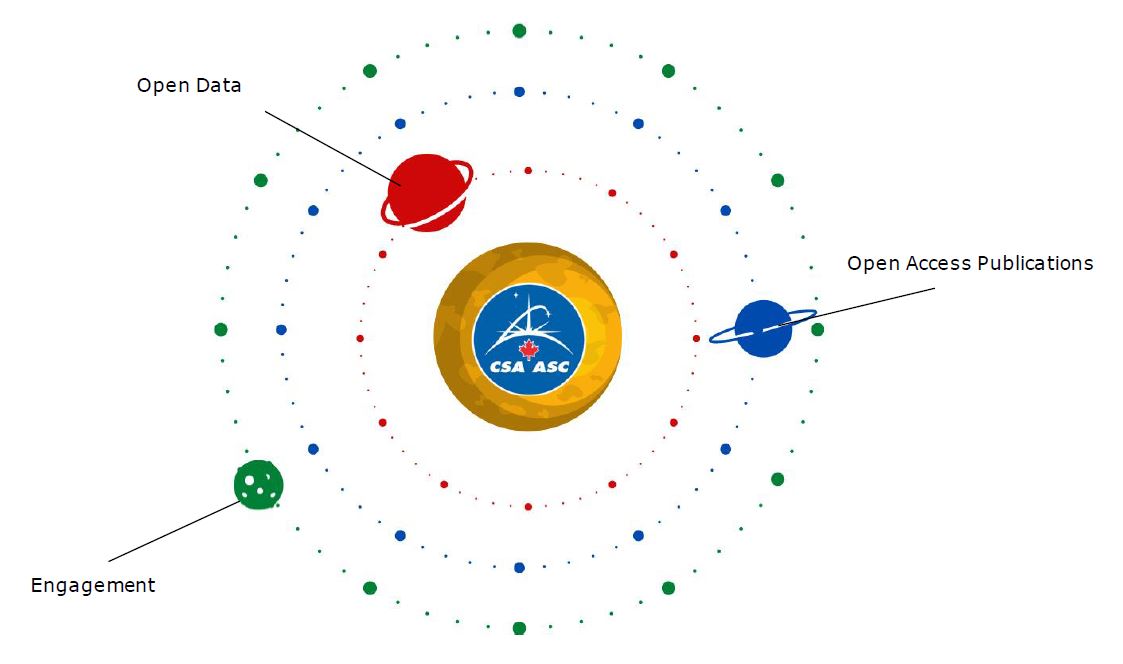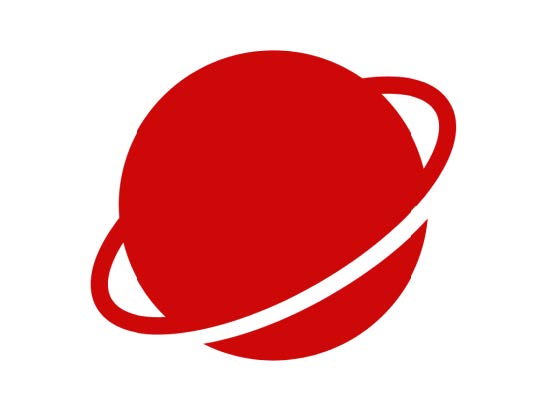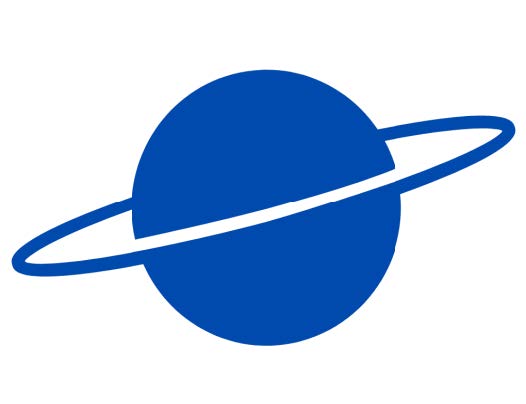- Open Science Action Plan
On this page
Message from the President
It is my pleasure to share with you the first Open Science Action Plan for the Canadian Space Agency. The CSA is a unique data provider for government departments and agencies, industry, and academia, and its indispensable position as a facilitator of scientific exploration is reflected here in 3 priorities: Open Data, Open Access Publications and Engagement.
The Roadmap for Open Science, published in February by Canada's Chief Science Advisor, outlines principles and recommendations to guide access to science and research funded by federal departments and agencies. While this Roadmap was developed within the context of the Open Government Directive, I am confident that the CSA's path forward for Open Science initiatives will help shape international efforts of inclusion, knowledge sharing and accountability through the accessibility of scientific information. As reflected in the CSA's - Departmental Plan, accessible federal space research and data not only opens the doors for new discoveries, it helps bring new voices to the table to build a more inclusive Canada.
The - Open Science Action Plan demonstrates the significant opportunities for partnerships and collaboration between federal institutions, academia and industry to advance Open Science principles. The Plan further outlines the multitude of ways in which existing partnerships and efforts can work together to reinforce new paths forward to advance priorities in the three key areas. Achieving Open Science requires a holistic and sustainable approach; it requires inclusivity and equity to ensure that all of our colleagues and data users are considered in this transition to make CSA data accessible for all. I welcome the opportunity to challenge the CSA in championing Open Science for many years to come.
Lisa Campbell
President, Canadian Space Agency
Introduction
The Canadian Space Agency (CSA) promotes the peaceful use and development of space, advances the knowledge of space through science, and ensures that space science and technology provide social and economic benefits for Canadians. The CSA's scientific activities supporting this mandate are multidimensional, ranging from climate science missions, robotic and satellite instruments, to space exploration missions where Canadian astronauts use outer space to conduct research leading to solutions applicable on Earth. The economic benefits of space activities are substantial, and this value can be maximized by greater openness in federal science publications and data, and with the development of outreach activities to make science accessible to all.
As a trusted partner within the international space community, the CSA reflects Canadian values and priorities for innovation, economic development, and best practices for information sharing. Aligned with the evolving commitments for Open Government across Canada, the CSA considers Open Science essential to the progression of the whole-of-government approach highlighted by the Directive on Open Government (). On the international stage, opening space data to the greatest extent possible remains one of the top priorities for space agencies worldwide to facilitate innovation and exchange on the global challenges of today and tomorrow. Moving forward, the CSA seeks to help champion Open Science efforts within the Government of Canada to situate better its policies in line with partner agencies, such as NASA and ESA, that have greatly influenced open data practices worldwide.
Under the leadership of the CSA Scientific Advisor and Chief Scientific Data Officer and with the collaboration of the Chief Information Officer's team, the CSA is pleased to present the - Open Science Action Plan. This plan offers the status and direction of Open Science activities in three key areas: Open Data, Open Access Publications, and Engagement. To best demonstrate the importance of Open Science and its cross-cutting attributes, that advance commitments government-wide, the CSA presents the Open Science System to conceptualize the path forward for the next three years.
The Open Science System

Credit: CSA
The Open Science System model is a method of understanding the importance and cross-cutting nature of collective actions within the Canadian Space Agency to:
- Emphasize priorities to be implemented over the next three years in support of the actions taken by the CSA in Open Science;
- Outline institution-specific priorities in compliance with the Roadmap for Open Science () set forth by the Office of the Chief Science Advisor; and
- Highlight CSA's engagements for a common approach by federal science-based departments and agencies (SBDAs).
There are three planets contained within the System: Open Data, Open Access Publications and Engagement. Each planet represents a priority for the CSA renewed efforts in Open Science.
Planetary Alignment

This model will be used throughout the - CSA Open Science Action Plan to illustrate where priorities may overlap or align within the Solar System to reinforce existing policies or areas where new collaborative efforts can increase the value impact of CSA activities. The alignment symbols pictured above indicate where potential opportunities and efforts exist within the System to advance Open Science across the CSA and the larger scientific community in Canada.
Priority I: Open Data
In this section

There is a growing area of investment and interest in the international community to harness the rich data from Earth Observation (EO) satellites to help us understand our planet and its resources. Increasingly, we can maximize high-quality space data to achieve Canadian priorities for innovation, sustainable development, and economic growth.
The CSA is committed to advancing the role of Open Data in internal and external engagements aligned with partners' priorities in Europe and the United States, which have benefited from free and open data policies for several years.
Achievements in Open Data
The Federal scientific data holdings are valuable assets to support evidence-based policy development, innovation, and collaboration. Since the launch of the Open Government Directive (), the CSA has generated many datasets on the central Open Government Portal. Canada's climate science contributions have provided open access data since their inception, motivated by the scientific community's historical philosophy for open data and knowledge sharing. The CSA currently funds several climate science missions, including SCISAT, the OSIRIS instrument on the Swedish Odin satellite and the MOPPIT instrument on NASA's Terra satellite. In , the CSA Access to Information and Open Data team launched the CSA Open Data portal in partnership with its Data Centre of Expertise to enhance public access to data records, including legacy EO data from the RADARSAT-1 constellation.
The Future of Space Data Governance
In Canada, the distribution of satellite data from any EO system is controlled by the Remote Sensing Space Systems Act () and its regulations. Data distribution is only authorized under a license issued by Global Affairs Canada (GAC), the administering authority for the Act (). National security are among the principal factors in the Act and its Regulations that the Minister must consider in the issuance of a license.
Whereas the Act does not refer to the benefits of open data, "Exploration, Imagination, Innovation," the Government of Canada's Space Strategy () recognized existing gaps in Canada's legislative and regulatory regime for space activities. The CSA has a legislated role in coordinating space policy across the Government of Canada and is therefore collaborating with interdepartmental partners to coordinate the development of policy approaches to ensure that regulations do not slow down Canada's contributions to Open Science initiatives or restrict access to EO data. Likewise, current Earth system and climate science missions developed by international partners are advancing understandings of open science through the opening of datasets at every step of the data production process.
Priority 1A. Integrate FAIR data principles within CSA organizational priorities
Roadmap for Open Science () Recommendation No. 5:
Federal departments and agencies should develop strategies and tools to implement FAIR data principles to ensure interoperability of scientific and research data and metadata standards by , with a phased plan for full implementation by .
Action 1: Develop strategies and tools for implementation of FAIR data principles to ensure interoperability of scientific and research data
The FAIR data principles are integral to creating and sustaining the impact of federal scientific outputs. Whereas existing space science missions in Canada are meeting many of the FAIR data principles, the CSA will consult internally to indicate barriers to sector-specific adoption of the FAIR data principles and will further work to mitigate the challenges through departmental outreach and awareness workshops.
Further, the CSA will conduct an inventory of data assets and an evaluation of the assets' progress regarding compliance to the FAIR data principles. High priority datasets, such as EO data relevant for the mitigation of climate change from RADARSAT-1, for example, will be retrospectively prioritized to ensure accelerated access for the Canadian scientific community. The CSA will work with Global Affairs Canada to facilitate access to data controlled under the RSSSA in a manner that aligns with FAIR principles.
As data from both commercial and federal holdings become an integral part of collaborative work with the scientific community in Canada and around the world, the CSA will continue to advance efforts to implement the FAIR Open Data principles (Findable, Accessible, Interoperable and Reusable) within the department and across the broader scientific, academic and industry communities in Canada.

Engagement with industry through existing consultations will also aid in identifying priorities for the CSA Data Inventory by recognizing the data products which bring forth the largest economic and social impact for Canadians.
Priority 1B. Collaboration with SBDAs to advance open data principles
Action 2: Continued participation in Open Data interdepartmental activities
The CSA provides space-based data across the federal government and plays important roles in defining the outputs from space-based investments and ensuring that outputs are included in the open data governance framework across the federal communities. Collaboration with SBDAs and participation in Open Data interdepartmental activities is essential to ensuring coherence in access and distribution of space data in other departments, such as Environment and Climate Change Canada (ECCC).
The CSA currently participates in several interdepartmental initiatives on advancing Open Science principles and practices. For example, CSA participates in the Science Data Management Working Group (SDM-WG) and its Data Management Plan (DMP) sub-working group, which provides participating departments with a forum to collaborate and identify best practices to support the provision of FAIR scientific data.
Priority 1C. Creation of expertise within the CSA data community
Action 3: Explore establishing a Scientific Advisory Committee for Space Data
The CSA's existing advisory committees act as a mechanism for consultation and discussion for each of the supported 6 scientific communities. Establishment of a data oriented committee with participation from each existing Advisory Board and relevant partner departments hosting space assets would strengthen partnerships and bases for decision-making at all levels within the CSA and across the federal community.

A combination of engagement efforts for Open Data and Open Access Publications at the working level will help to ensure research security through promotion of best practices of information management and dissemination.
Action 4: Collaborate on a whole-of-government approach to align policies and rules for space-based EO data
Aligned with the Space Strategy for Canada (), the CSA will work with relevant stakeholders to improve access to EO data to support Canadian innovation, economic growth, and science. In particular, the CSA will continue to lead the development and the implementation of the SBEO Vision, in collaboration with 17 federal departments and agencies, which sustain and nourish this whole-of-government approach on EO data. Furthermore, the CSA will pursue its collaboration with Global Affairs Canada (GAC) to address challenges with the RSSSA () and its administration, as well as support any other relevant policy reforms, as needed.
Priority II: Open Access Publications
In this section

The CSA recognizes the importance of accessible publications for progress towards Open Science while respecting privacy, security, ethical considerations, and appropriate intellectual property protections. To achieve accessibility for federally funded and authored publications, the CSA has established several initiatives to ease access to intramural and extramural scientific outputs. These activities include considerations for scientific publications produced by primarily academic stakeholders and some CSA employees who contribute significantly to the scientific community through funded research.
The CSA is committed to advancing its actions in Open Access Publications as doing so will optimize return and impact on its funding investments, further contribute to scientific integrity and will holistically provide the Government of Canada with improved knowledge sharing leading to progress on key issues that matter to Canadians, such as climate actions and a green economic transition.
CSA-Funded Publications
The CSA is active in the scientific research community through the establishment of various funding programs and opportunities. Annual performance indicators evaluate outputs derived from CSA grants and contributions through the Performance Indicators survey which aims to describe the result of Canadian investment in activities funded by the CSA.
From to , the CSA injected over $54 million in academic research through its grants and contributions. Most often, scientific publications are the outputs of this funding. The CSA amended its Guides for Writing an Announcement of Opportunity in to ensure grants and contribution stakeholders were informed of the use of open and accessible journals and repositories to disseminate scientific results. Accordingly, when publications result from CSA funding, academic stakeholders can maximize circulation and engagement of their findings, increasing accessibility and impact of this new information across the scientific community. As open science policies will continue to be applied to funding initiatives, the expected result will be an increased number of publications published in open access.
Further, a case study analysis conducted in by in the CSA's Sun-Earth System Science division concluded that whereas 41% of all publications from existing atmospheric science missions are currently open access, there is potential for 74% of publications becoming open access through conversion efforts. While the rate of open access at the CSA (54%) is similar to the federal SBDAs (48%), the CSA will continue to review and implement open science practices in the field of open access publications.
CSA-Authored Publications
CSA employees disseminate scientific research in many forms including oral presentations, poster submissions and multimedia publications. The list of CSA's authored publications is hosted on the central Open Government Portal managed by the Treasury Board of Canada Secretariat and on the new CSA Open Data Portal to facilitate access to the public. By incorporating the Roadmap for Open Science recommendations, the CSA can take further actions to improve CSA authors' engagement in Open Science practices and advance public access to outputs concurrently.
The following actions will improve the open access rate of CSA's intramural and extramural publications. They will further aid in a culture shift towards Open Science shifts in the scientific community.
Priority 2A. Open Access to CSA-Funded Publications
Roadmap for Open Science () Recommendation No. 4:
Federal departments and agencies should make federal science articles openly accessible by and federal science publications openly accessible by , while respecting privacy, security, ethical considerations and appropriate intellectual property protection.
[...] This recommendation also applies to new science articles and publications that were contracted by a federal government department or Agency and published as of .
Action 5: Assess the state of Open Access and rate of funded publications at the CSA
The CSA will continue to monitor the impact of its open science actions by updating the internal study, which examines the openness and accessibility rates of funded activities. This study will also assist in reviewing grants and contribution agreements, supporting decision-making, and incentivizing open science initiatives funded by the CSA.
Through existing surveys, the CSA is already collecting information on Open Science initiatives with regards to publications. The CSA will explore opportunities to expand these surveys and other data collection methods, including bibliometrics, to broaden the scope of the information collected. The results of this data collection will inform comprehensive approaches to connect open access outputs as a result of Canadian investments to utilize space data.
Action 6: Review CSA mechanisms to encourage Open Access for funded publications
Currently, CSA grants and contributions eligibility requirements do not mandate publication of outputs in open access. CSA announcements of opportunities encourage funding recipients to publish using a freely accessible online repository or open access journals. The CSA Access to Information and Open Data team will work in collaboration with the Grants and Contributions stakeholders within the Agency to advance requirements for open access publications as a result of CSA funding opportunities.
Additionally, to assist in the conversion of funded-publications using Canadian space science data to open access, budget may be allocated to the removal of licensing restrictions on high-priority outputs not currently published as open access.
Action 7: Support SBDA development of common tools for Open Access publishing
As outlined in the Roadmap for Open Science (), the federal science community should focus on a joint approach when moving forward with open science initiatives. Thus, the CSA will take part in this endeavour by participating in a common pilot project with SBDAs aiming to establish a findable and searchable collaborative public repository for hosting scientific publications.

Priority III: Engagement
In this section

Open Science provides extensive opportunities for collaboration and engagement with CSA partners, SBDAs and civil society to advance the integration of the research outputs from science into evidence-based decision making. Accordingly, this Planet accounts for internal and external engagements to foster vertical and horizontal collaboration in the space domain, drawing inspiration from the - Departmental Plan's emphasis on engagement.
The CSA recognizes the importance of its employees, partners, and citizen scientists in achieving nation-wide goals for innovation and economic growth. Unlike outer space, the CSA activities and policies do not operate in a vacuum; accordingly, Priority III on Engagement aims to outline strategic efforts to promote the benefits of Open Science within the CSA star system and to the larger Government of Canada galaxy.
CSA External Engagement
Open and accessible science fosters public engagement to bridge gaps in awareness and public confidence in activities across the space and EO science communities. As such, the CSA recognizes external engagement as essential to bring recognition to the importance of science in the everyday lives of Canadians. The CSA also recognizes the role of engagement across the Government of Canada, academia, civil society, and international partnerships to foster opportunities from space utilization to achieve the Sustainable Development Goals (SDGs) and green economic growth to achieve scientific solutions to global challenges such as climate change mitigation.
To maximize the reach and impact of its scientific engagements, the CSA outlines the continuation of efforts to advance values of equality and equity within the global scientific community, such as the promotion of underrepresented groups in STEM careers and their involvement in world-class scientific discoveries, alongside problem-solving collaborative events. One example of these initiatives is the annual SpaceApps Challenge which invites teams of citizen scientists to use open data provided by the CSA and its partners to develop solutions to address real-world challenges on Earth and in space, guided by a cohort of CSA mentors and judges.
Encouraging the next generation of scientists and leaders to adhere to the Open Science principles is essential to facilitate a long-term, sustainable collaboration and information-sharing culture. The FAST funding initiative under the STEDIA program provides academics in their early career with opportunities to develop their skills in all aspects of the hardware development phase for suborbital activities, including data analysis following the completion of the projects. Young people and students also have the opportunity to participate in internships within the CSA and its Data Centre of Expertise to promote data solutions to contribute to existing initiatives, such as the new CSA Open Data Portal and its application programming interfaces (APIs).
Cultivating the incoming organizational knowledge, interest, and expertise in Open Science in students and youth is essential to future collaborative CSA activities and a sustainable institutional culture which recognizes the benefit and impact of open data and knowledge sharing across the Canadian scientific community.
CSA Internal Engagement
To facilitate the promotion of Open Science mechanisms within the CSA (such as the FAIR data principles), internal engagement is necessary to inform and revitalize access to resources to help employees and academic partners at all stages of their respective projects. An internal survey conducted in assessing the state of Open Science within the CSA reaffirmed the necessity for internal awareness activities to promote the maturity of Open Science principles inextricably linked to the impact of CSA activities. Respondents noted the importance of Open Science but also highlighted difficulties of applying its principles to individual projects.
Internal engagement in the form of sector-specific information distribution and activities on Open Science principles and practices is thus critical to cultivating the use of existing CSA data. Bringing forward new internal engagement activities will improve a collaborative culture within the organization and help employees identify how open science relates to their roles.
Awareness Tools
Updating a toolkit of awareness activities to promote collaboration on Open Science activities within the CSA and the informal scientific community is important for the 3-year pathway. Accordingly, a common approach across the federal science community and its disciplinary communities may be enhanced by revitalizing science data workshops and featuring Open Data and Open Access Publication user stories similar to the feature of the COVID-19 SpaceApps Challenge on the Treasury Board of Canada Secretariat's Open Government homepage.
Further, to address the specific concerns and difficulties identified by the CSA internal survey regarding the applicability of Open Science principles and practices to programmatic activities, a second consultation will evaluate the critical concerns of both employees and academics working with CSA data and funding. Regarding integration of FAIR Data principles outlined in Recommendation 5 of the Roadmap for Open Science (), the CSA will ensure the continued partnership and participation with international organization (such as NASA and the Japan Aerospace Exploration Agency) and working groups to advance conversations and collaboration for standard-setting.

Roadmap for Open Science () Recommendation 5 in Priority 1: Open Data calls for "meaningful engagement and coordination with the extramural and international scientific communities and disciplinary societies" to contribute to data and metadata standard-setting and strategies to implement FAIR data principles.
Comprehensive and strategic awareness directed at university students, faculty, industry, partners and CSA employees on the Open Science principles and practices will ensure an intersectional upskilling and reskilling beyond the federal scientific community to benefit Open Science in Canada.
Roadmap for Open Science () Recommendation No. 1:
Canada should adopt an Open Science approach to federally funded scientific and research outputs.
Priority 3A. Understanding and using Open Science principles and practices
Action 8: Develop tools for access and use of data by non-experts
The CSA will develop a Data 101 toolkit for citizen scientists to advance usability of existing datasets published on the Open Data Portal through a phased approach. High-priority datasets should be first accompanied by developed resources on data manipulation and accessibility for low-capacity users to increase interoperability and impact in partnership with the Data Centre of Expertise.
Additionally, the CSA will collaborate with relevant partners, such as recipients of the Grants for Space STEM Initiatives for Youth to develop citizen science initiatives using specific datasets by leveraging the informal science community in Canada.
Action 9: Build organizational awareness towards Open Science at the CSA
A secondary CSA survey will inform workshops and awareness training on priority aspects of the Scientific Integrity Policy and Open Science principles and practices. Additionally, the revitalization of Open Labs (events in which the CSA employees can learn more about Open Science and Open Data) towards a new series of "Open Discussions" will bring program sector-specific knowledge communities to discuss areas of concern for subjects such as privacy, ethics, and intellectual property through the lens of Open Science. The outcomes of the "Open Discussions" can be used to inform subsequent CSA - Open Science Action Plan strategic engagement methods.
Lastly, the CSA will work towards the development of visual tools and flowcharts to improve the recent Open Science Lifecycle to guide CSA employees and partners in applying the principles at each stage of their work.
Priority 3B. Engaging with Open Science and sharing best practices
Action 10: Continue engagement with multi-stakeholder working groups
The CSA will continue its partnerships within the international scientific community and its engagement with international working groups on Open Science, such as the Committee on Data for Science and Technology (CODATA), to strengthen partnerships and opportunities for collaboration on existing and new initiatives.
Conclusion
The Open Science System presents various opportunities for collaboration and alignment of existing CSA initiatives to achieve priorities outlined in the Roadmap for Open Science () developed by the Office of the Chief Science Advisor of Canada. The CSA Open Science Action Plan for - provides a path forward for the CSA to advance government-wide efforts to deliver on the Open Government priorities of accountability and transparency in addition to the exponential benefits of Open Science across the country and around the world.
Progress Measurement
The CSA Open Data and Access to Information team will work diligently to report biannually on the progress of all eleven actions outlined below to the Chief Information Officer and CSA Scientific Adviser:
| Action | Expected Result | Preliminary Progress Indicator(s) |
|---|---|---|
| Action 1 | Internal tools and strategies to implement the FAIR data principles are developed |
|
| Action 2 | Continued participation in Open Data interdepartmental activities to advance open data principles |
|
| Action 3 | Exploring the possibilities of a new scientific advisory committee for space data is completed |
|
| Action 4 | Collaboration of a whole-of-government approach to EO data governance and distribution efforts |
|
| Action 5 | The state of Open Access and rate of funded publications at the CSA is assessed and monitored |
|
| Action 6 | CSA Commitments for Open Access publications are strengthened |
|
| Action 7 | Common tools for Open Access publishing for CSA-funded publications are collaboratively developed with SBDAs |
|
| Action 8 | A toolkit for manipulating data is available for citizen scientists |
|
| Action 9 | CSA's organizational awareness and strategic engagement on Open Science is increased |
|
| Action 10 | Multi-stakeholder engagement is continued to share and improve upon best practices for collaboration on Open Science efforts |
|